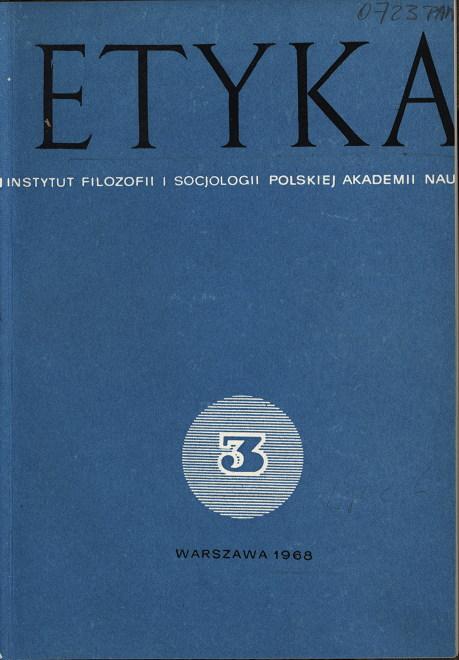Zasady wymiaru sprawiedliwości w świetle badań empirycznych
Keywords:
prawo karne, przestępstwo, kara śmierciAbstract
The writer concentrates upon some selected problems of the theoretical analysis of the conception of “justice” and upon practical applications of the idea of justice, above all in penal law. After having quoted some more interesting views and discussions on this conception (e.g. those of Aristotle, Hume, and K. Ajdukiewicz), the writer pays special attention to the conception of universal formula of justice, postulated by Ch. Perelman. Such a formal justice he defines as a principle of action, according to which persons belonging to the same category should be equally treated. However, this conception eliminates neither arbitrarily nor dependence of justice from the acknowledged world-outlook and hierarchy of values. Being an abstract and general conception, it requests a concretisation which consists in choosing one essential category based on an arbitrary selection of essential characteristics.
Downloads
Published
Issue
Section
License
Works published in ETYKA are available under the Creative Commons Attribution No Derivatives 4.0 International Licence (CC BY-ND), which entails acknowledgement of authorship without derivative works. Under this licence, Authors keep their copyrights and agree that their works can be used again legally for any purpose, including commercial ones, except for the creation of derivative works, without the need to obtain previous consent of the Author or publisher. The articles can be downloaded, printed, copied and disseminated; under the condition that the authorship is indicated accordingly, together with the place of original publication. The Authors preserve their copyrights to the above-mentioned works without any limitation whatsoever.



